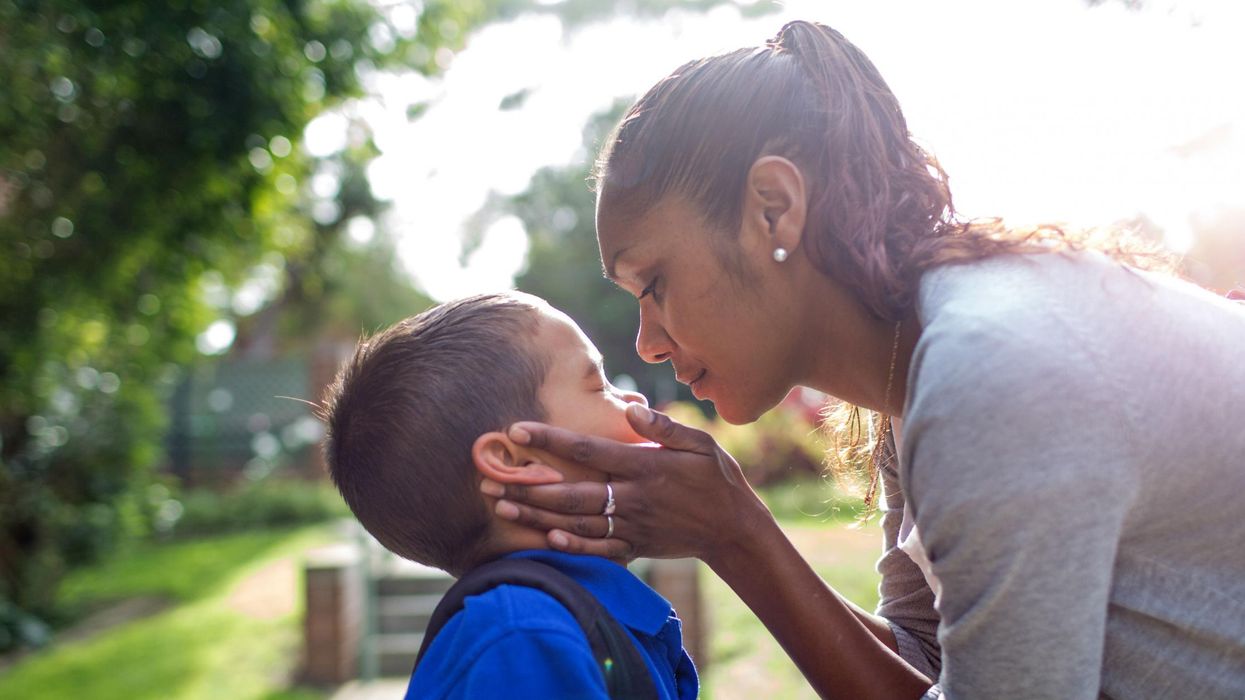
Bullying is a serious problem in schools, and with children’s communication widened through the use of social media, it often happens in packs online, and extends into the home through cyberbullying.
Research by YouGov and Survation published last year found that 40 per cent of young people are bullied for their academic ability, and more than 39 per cent say this has impacted their school grades.
According to LGBT+ charity Stonewall, nearly half of LGBT+ pupils (45 per cent) are bullied because of who they are, and more than two in five trans young people, and 22 per cent of gay, lesbian and bi students have tried to take their own life.
Nearly half (46 per cent) of young people are anxious about going back to school because of the holidays as a result of bullying, and 70 per cent of parents – that’s nearly three quarters – don’t think head teachers are doing enough to stop bullying in schools.
indy100 reached out to psychiatric professionals and LGBT+ organisations, and collected a number of ways that parents can help if they believe their child is being bullied.
1. Let your child know they are not weak for being bullied.
Dr Michael Duke, a psychiatrist who has more than 30 years experience working with children and who co-founderd Eaware, which promotes internet safety for children and young people, told indy100:
Bullying thrives on secrecy and bullies exist when the person they torment feels disempowered. People who are bullied are not ‘victims’, that is such a negative label, they are people that someone else has chosen to target inappropriately.
It is a brave and courageous thing to do to seek help.
2. Encourage your child to speak up.
Dr Duke adds that bullies control through secrecy. Encourage your child to talk about any problems they have in school, and emphasis that this takes the power away from the bully.
My professional and personal experience has shown me that once someone has sought help the road to support and safety becomes clear and empowering.
Everyone has a right to feel safe and not threatened.
He encourages adults and children to seek help when they are being bullied. Staying silent, he says, "embolden's the abuser" into continuing with their bullying. It's a matter of control, and once a child "speaks out and shares what is happening", the bully loses control.
Speaking out and disclosing what is happening should be encouraged and children and adults made to feel safe from their abuser once they have shared what is happening to them.
If someone being abused does not speak out the abuser becomes increasingly empowered and the situation for the abused child or adult only deteriorates.
"Making the courageous first step and talking to someone is the first step to freedom from any sort of abuse," he added.
3. Seek support from children's organisations.
In an email to indy100, Becki from Proud Trust, an organisation that supports LGBT+ youth, encourages parents to work with such organisations to help their children.
Here is the UK, the Proud Trust is working with schools, families and friends to ensure that LGBT+ children and young people feel safer in the places they live, learn, play, work and pray.
Every year we offer a family and friends day where people can share and grow together. If parents feel their child needs support in anyway then please do contact us and we will be happy to help.
4. Challenge schools that fail to act when bullying takes place.
Professor Ian Rivers, head of the School of Education at the University of Strathclyde in Glasgow. says schools need to be responsible for students in their care. He tells indy100:
It is important the schools protect young people who identify as lesbian, gay, bisexual or transgender. It is increasingly the case that young people are questioning their sexual orientation and gender identity in primary or elementary school. This case demonstrates the isolation and powerlessness that many feel when they are bullied or victimised.
Parents too need to be strong and to challenge schools that fail to act when bullying takes place. We have yet to find an intervention that works with all forms of bullying but interventions that promote social and emotional skills training, problem solving and emotional literacy are proving quite successful.
He added that "no nine year old should ever feel that suicide is the only option left to them to escape torment".
Jeff Ingold, media manager at the LGBT+ charity Stonewall compels schools to do more in ensuring all students feel safe behind their walls.
While there are many dedicated teachers, schools and governments trying to bring about change and end anti-LGBT bullying, what happened to Jamel is a painful reminder of how much more there is to do. LGBT people’s lives are at risk. School should be a place where every young person feels safe and able to be themselves and young people need and deserve an education that reflects and celebrates diversity.
If you have been affected by this article, you can contact the following organisations for support:
More: This is why some people with mental illness say they're 'tired'













